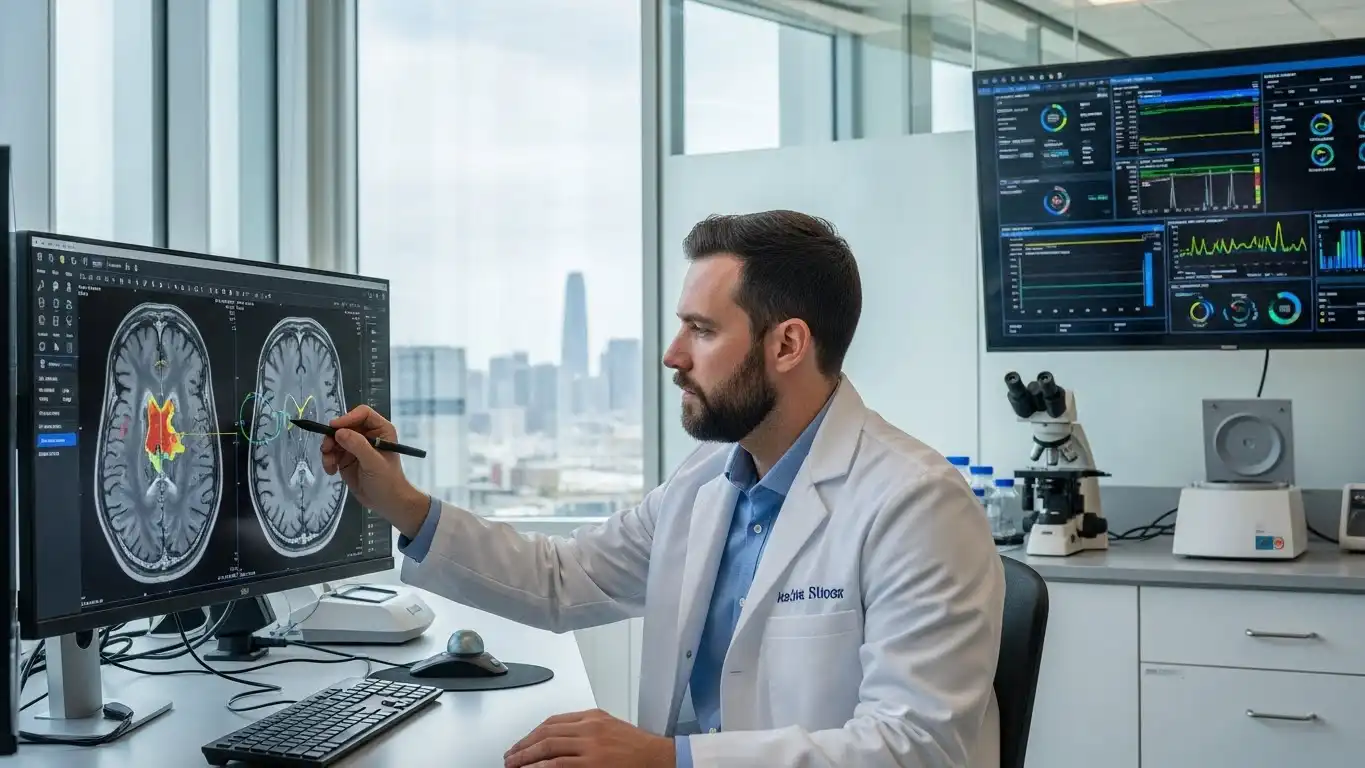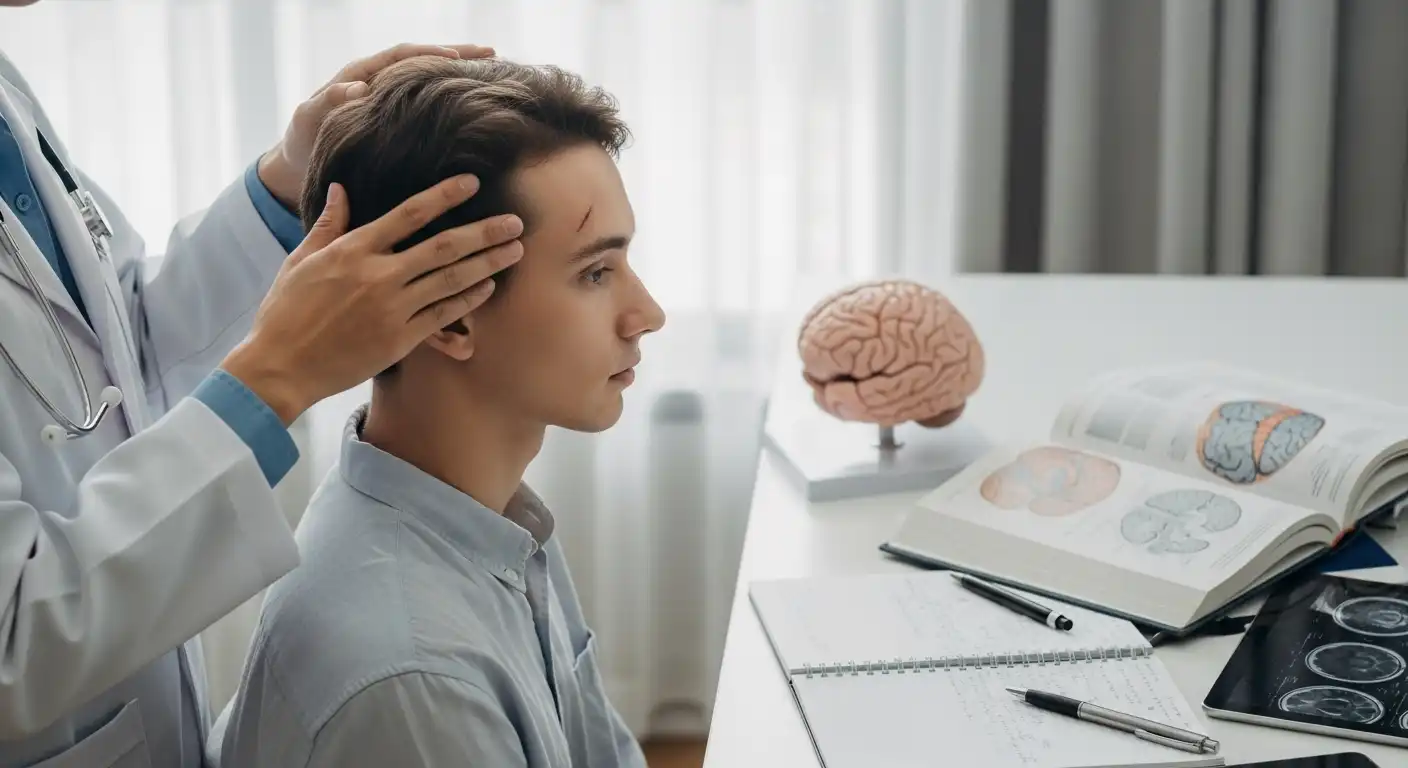Brain injuries, whether mild or severe, can have lasting consequences. When you suffer a blow to the head, a fall, or a sudden jolt that causes a brain injury, it’s critical to seek immediate medical attention. The effects of brain injuries, such as concussions or traumatic brain injuries (TBIs), may not always be visible right away, and some symptoms can take hours or even days to develop. For this reason, addressing a potential brain injury as soon as possible can be life-saving and ensure that you receive the appropriate care to prevent further damage.
In this blog post, we’ll discuss why it’s essential to seek medical attention after a brain injury and how it can protect your health, improve your chances of recovery, and even strengthen your legal case if you decide to pursue compensation for your injuries.
1. Brain Injuries May Not Show Immediate Symptoms
One of the biggest reasons to seek immediate medical care after a brain injury is that symptoms may not present themselves immediately. You might feel fine right after the accident, but many brain injuries don’t show symptoms right away. For example, a concussion—one of the most common types of brain injury—can take hours or even days to fully manifest.
-
Delayed Symptoms: Even a mild concussion can cause symptoms such as headaches, dizziness, memory problems, nausea, and sensitivity to light. Severe brain injuries, such as TBIs, may have more significant delays in symptoms, including confusion, difficulty concentrating, slurred speech, and loss of coordination.
-
Internal Injuries: While external signs like bruising or swelling may appear quickly, internal brain injuries—such as bleeding or swelling inside the skull—may not be immediately apparent but can worsen over time. In these cases, symptoms like vomiting, loss of consciousness, or worsening headaches may appear hours or days later.
Prompt medical attention ensures that even subtle injuries are identified and treated before they lead to more serious complications.
2. Preventing Further Damage
The brain is an incredibly delicate organ, and it doesn’t take much trauma to cause permanent damage. When you experience a blow to the head or any trauma to the brain, there’s always the potential for bleeding, swelling, or a change in brain function. The longer you wait to get medical help, the higher the risk that the injury could worsen.
-
Monitoring for Complications: When a healthcare professional evaluates your condition, they will look for signs of increased intracranial pressure, bleeding, or swelling in the brain. If untreated, these conditions can lead to severe brain damage, coma, or even death. Early medical intervention can help control swelling, prevent bleeding, and minimize the risk of permanent brain damage.
-
Minimizing Long-Term Effects: Receiving treatment right away helps doctors stabilize your condition and prevent further injury. For example, imaging tests like CT scans or MRIs can detect brain bleeds or structural damage, which can then be managed with medical procedures to prevent further harm.
3. Accurate Diagnosis and Treatment
Seeking immediate medical attention is critical because it allows for an accurate diagnosis of the injury. While some brain injuries might seem like a minor bump on the head, others could be far more serious than they appear. Only a medical professional can evaluate the extent of the damage and recommend an appropriate course of treatment.
-
Comprehensive Evaluation: Doctors will conduct a thorough examination and may use advanced imaging techniques like MRIs or CT scans to identify the full extent of the injury. They may also assess your cognitive and physical responses to determine if there is any damage to your brain function.
-
Appropriate Treatment: Once a diagnosis is made, your doctor will develop a treatment plan tailored to your specific injury. This may include rest, medication, surgery, or rehabilitation therapies. Early treatment can significantly increase your chances of recovery and minimize the long-term impact of the injury.
4. Identifying Other Potential Injuries
In many cases, brain injuries occur alongside other physical injuries. After a fall, car accident, or any other traumatic event, it’s possible that you’ve also sustained fractures, contusions, or sprains that may not be immediately apparent. Seeking immediate medical attention allows doctors to perform a full evaluation of your overall health.
-
Head and Neck Injuries: Brain injuries are often associated with neck injuries, particularly whiplash or spinal cord damage. Immediate medical attention allows for a thorough evaluation of both the head and neck, ensuring that any additional injuries are identified early.
-
Concussion Management: For example, a concussion might be accompanied by a neck injury or other trauma that could exacerbate the brain injury symptoms. A doctor will assess all aspects of your health to ensure that everything is treated in conjunction with the brain injury.
5. Building a Strong Legal Case
If you plan to pursue compensation after your brain injury, having immediate medical documentation is crucial. Insurance companies and courts will look at the timing of your medical visits and the severity of your injuries. Delaying medical attention could weaken your case and raise doubts about the legitimacy of your injury.
-
Documentation of Injuries: When you seek immediate medical help, a detailed record of your injuries will be created. This record serves as key evidence in your case, showing that your injuries were directly caused by the accident. It can also detail the severity of your injury and document the treatment you’ve received.
-
Strengthening Your Claim: The sooner you seek medical care, the more likely it is that the doctor’s report will be linked directly to the accident, ensuring that your injury is clearly connected to the incident. This can help you receive the compensation you deserve for medical bills, lost wages, and pain and suffering.
6. Protecting Your Future Health
Even if your brain injury appears to be mild, not seeking immediate medical help could lead to long-term health issues that might not become apparent for months or even years. For instance, repetitive concussions can result in cumulative damage to the brain, leading to conditions such as chronic traumatic encephalopathy (CTE), which has been linked to mood disorders, cognitive decline, and motor difficulties.
-
Early Intervention: By seeking medical attention right away, you increase the chances of diagnosing any long-term or cumulative issues early on. Early diagnosis can help you take proactive steps to protect your health and manage any potential future complications.
-
Long-Term Support: Your doctor will be able to guide you through the recovery process, including any long-term rehabilitation needs, cognitive therapy, or support to help you regain as much function as possible. The earlier this is addressed, the better your outcome will be.
7. The Psychological Impact of Brain Injuries
Brain injuries, especially moderate or severe ones, can also affect your mental health. Cognitive changes, emotional instability, and psychological distress are common after brain trauma. Seeking immediate medical attention helps identify any psychological effects that might be connected to the injury, allowing for a holistic treatment approach.
-
Mental Health Assessments: In addition to physical evaluations, your doctor may recommend assessments for any emotional or psychological symptoms you might be experiencing. This can help with treatment planning, ensuring that all aspects of your recovery—both physical and mental—are addressed.
Conclusion
Seeking immediate medical attention after a brain injury is not just about immediate treatment; it’s about safeguarding your long-term health and protecting your legal rights. Even if your symptoms don’t seem serious right away, a medical evaluation is crucial for detecting hidden injuries, preventing further damage, and ensuring a comprehensive recovery plan. Whether you’ve suffered a mild concussion or a more severe traumatic brain injury, prompt medical care increases your chances of a full recovery and helps preserve your future health.
Additionally, if you’re considering a legal claim, timely medical attention ensures that your injuries are documented properly, which strengthens your case for compensation. Never underestimate the importance of getting checked out after a brain injury—your health, well-being, and legal standing depend on it.


